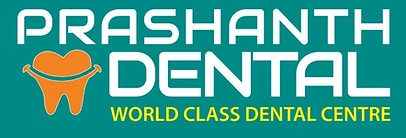What Are Gum Diseases?
Gum diseases are infections that affect the tissues around your teeth. These tissues help keep your teeth in place. Often, gum diseases start with mild swelling or redness. However, if left untreated, they can lead to tooth loss. According to the CDC, gum diseases are common but preventable. Many people do not know they have them until symptoms appear. For this reason, regular dental check-ups are important.
Common Symptoms of Gum Diseases
Early signs of gum disease can be easy to miss. Still, knowing what to look for helps you act quickly. Here are some common gum disease symptoms:
Sometimes, you may notice only one or two of these signs. Even so, it is best to see your dentist if you notice any changes in your gums.
Causes and Risk Factors
Gum diseases usually start with plaque. Plaque is a sticky film of bacteria that forms on your teeth. If you do not remove plaque by brushing and flossing, it can harden into tartar. Tartar makes it easier for bacteria to cause infection. In addition, several risk factors can increase your chances of getting gum disease:
Because these factors can add up, it is important to manage your oral health daily.
How Gum Diseases Are Diagnosed
Dentists use several steps to diagnose gum diseases. First, they will ask about your symptoms and health history. Next, they will check your gums for swelling, redness, or bleeding. They may also measure the space between your teeth and gums. This helps them see if your gums are pulling away from your teeth. Sometimes, X-rays are needed to check for bone loss. Early diagnosis makes gum disease treatment easier and more effective.
Treatment Options
Treatment for gum diseases depends on how severe the problem is. For mild cases, your dentist may suggest:
For more advanced gum disease, other treatments may be needed. These can include:
Your dentist will explain which gum disease treatment is best for you. Always follow their advice for the best results.
Prevention Tips and Lifestyle Guidance
Preventing gum diseases is possible with good daily habits. Here are some oral health tips to help you keep your gums healthy:
Because prevention is easier than treatment, start these habits today. If you live in a city with high pollution or stress, take extra care of your oral health. Even small changes can make a big difference over time.
Conclusion
Gum diseases can affect anyone, but you can lower your risk with simple steps. Early action, along with regular dental visits, plays a crucial role in protecting your smile and maintaining good oral health.
Consult Dr. Prashant Marka, a dental specialist, for personalized advice on gum disease prevention and treatment. Taking proactive care now can help ensure long-term oral health and a beautiful, healthy smile


